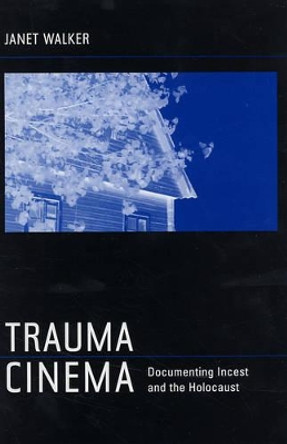Description
About the Author
Lawrence Baron teaches history at San Diego State University, and is the author of The Eclectic Anarchism of Erich Muehsam, co-editor of Embracing the Other: Philosophical, Psychological, and Historical Perspectives on Altruism, and Martin Buber and the Human Sciences and served as historian for The Altruistic Personality: Rescuers of Jews in Nazi Europe.
Reviews
Some authors provide sound scholarship, others supply detailed analysis, but few combine these accomplishments with prose that bridges the gap from the academic to the general reader. Historian Lawrence Baron has done just that while dealing with the often-controversial area of cinematic representations of the Holocaust. Because World War II genocide remains so dark a subject, it is easiest to see the era in high contrast black and white. This author points to the complexities of history, filmmaking, and cultural perceptions by contextualizing his work within classic films of the Shoah (from 1945-1979) while identifying trends and shifts in how stories of the Holocaust are now brought to the screen in the twenty-first century. Few previous works study more than the obvious contemporary movies, Schindler's List (1993) or Life is Beautiful (1997). This author looks at a wide range of films, including X-Men as "Holocaust pop metaphor" indicating that the shadow of past atrocities pervades our culture. Baron meticulously developed a database of films to discern changes in filmic Holocaust narratives. -- Deborah Carmichael, Oklahoma State University
Offers rich, detailed, and thoughtful analysis of international holocaust film by an author who has been teaching classes on Jewish History and the Holocaust for many years. . . . This is an important book on an important topic and should be in all film collections. -- Eleanor Block * Communication Booknotes Quarterly *
Combining scrupulous research and keen insight with prior film criticism and artistic, social, and historical information, Baron (history, San Diego State Univ.) renders this somber and difficult subject most accessible. The study is distinguished by thevarious schools of thought on how Holocaust subjects should or should not be treated on film. The author avoids repeating and recycling ideas, instead juxtaposing new findings and insights with established views, thereby delivering well-rounded and informative coverage of a dynamic subject with myriad facets and repercussions...An excellent resource for those interested in film or in political science, history, or psychology. Summing Up: Essential. Upper-division undergraduates through faculty and professionals.. -- L. D. Talit, Central Connecticut State University * CHOICE *
Baron's study provides an excellent overview of recent movies dealing with the Holocaust. While broadening the common notion of "Holocaust cinema," Baron's cultural historicist approach casts light onto the increasingly larger role visual media play in the process of raising public awareness of historic events. Teachers and students of cultural, intellectual and film history will find the volume particularly helpful due to its format of individual film reviews, its nearly comprehensive filmography and its extensive bibliographical information. -- Heike Polster, Department of Germanic Languages and Literatures, Washington University * H-Net: Humanities and Social Science Reviews Online *
A valuable addition to the extant scholarship on Holocaust cinema. . . . Baron's accessible and stimulating book fills in some significant gaps in studies of Holocaust feature films and is a useful reference for specialists as well as those with a more general interest in the subject. -- Kathrin Bower * German Studies Review, Vol. 30, No. 3 (2007) *
Combining scrupulous research and keen insight with prior film criticism and artistic, social, and historical information, Baron (history, San Diego State Univ.) renders this somber and difficult subject most accessible. The study is distinguished by the various schools of thought on how Holocaust subjects should or should not be treated on film. The author avoids repeating and recycling ideas, instead juxtaposing new findings and insights with established views, thereby delivering well-rounded and informative coverage of a dynamic subject with myriad facets and repercussions...An excellent resource for those interested in film or in political science, history, or psychology. . . . Essential. Upper-division undergraduates through faculty and professionals. -- L. D. Talit, Central Connecticut State University * CHOICE *
[...] I wish to recommend this book without reservation to anyone even remotely interested in the subject. For me, it serves as reality check in my memory, and delineates what "bearing witness" means. To the reader, it may provide invaluable insights on what can be done to explain the inexplicable. -- Frank Manchel, University of Vermont * Journal of Popular Film and Television *
Some authors provide sound scholarship, others supply detailed analysis, but few combine these accomplishments with prose that bridges the gap from the academic to the general reader. Historian Lawrence Baron has done just that while dealing with the often-contorversial area of cinematic representations of the Holocaust. * Film & History: An Interdisciplinary Journal *
Baron's well-researched, heavily annotated but still quite readable volume offers statistical analyses to indicate trends and genres which are then exemplified by detailed synopses and analyses of selected films within each category and decade, complete with reactions from critics, box office receipts, and awards bestowed. * Shofar: An Interdisciplinary Journal Of Jewish Studies *
Well-researched... quite readable -- Richard Libowitz, Intellectual Heritage Program, Temple University
Book Information
ISBN 9780742543324
Author Lawrence Baron
Format Hardback
Page Count 320
Imprint Rowman & Littlefield Publishers
Publisher Rowman & Littlefield
Weight(grams) 531g
Dimensions(mm) 247mm * 161mm * 25mm
Details
Subtitle: |
The Changing Focus of Contemporary Holocaust Cinema |
Imprint: |
Rowman & Littlefield Publishers |









